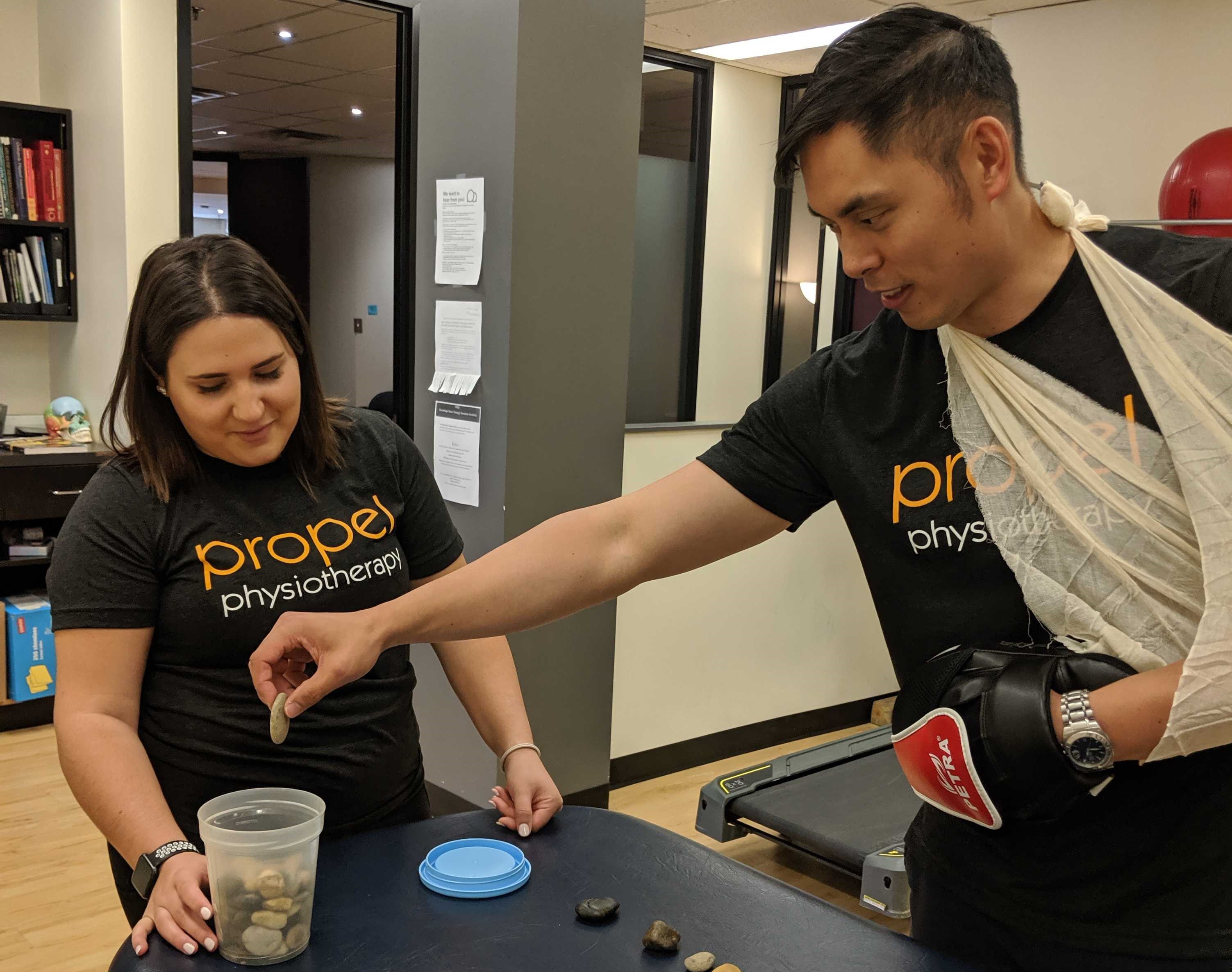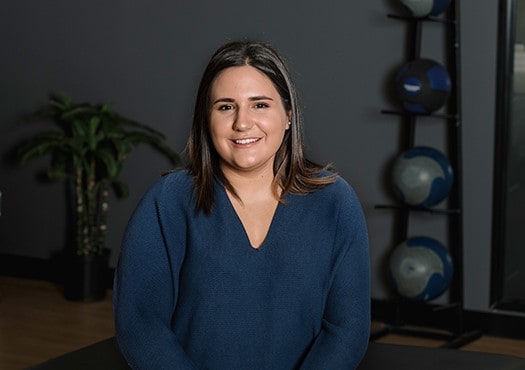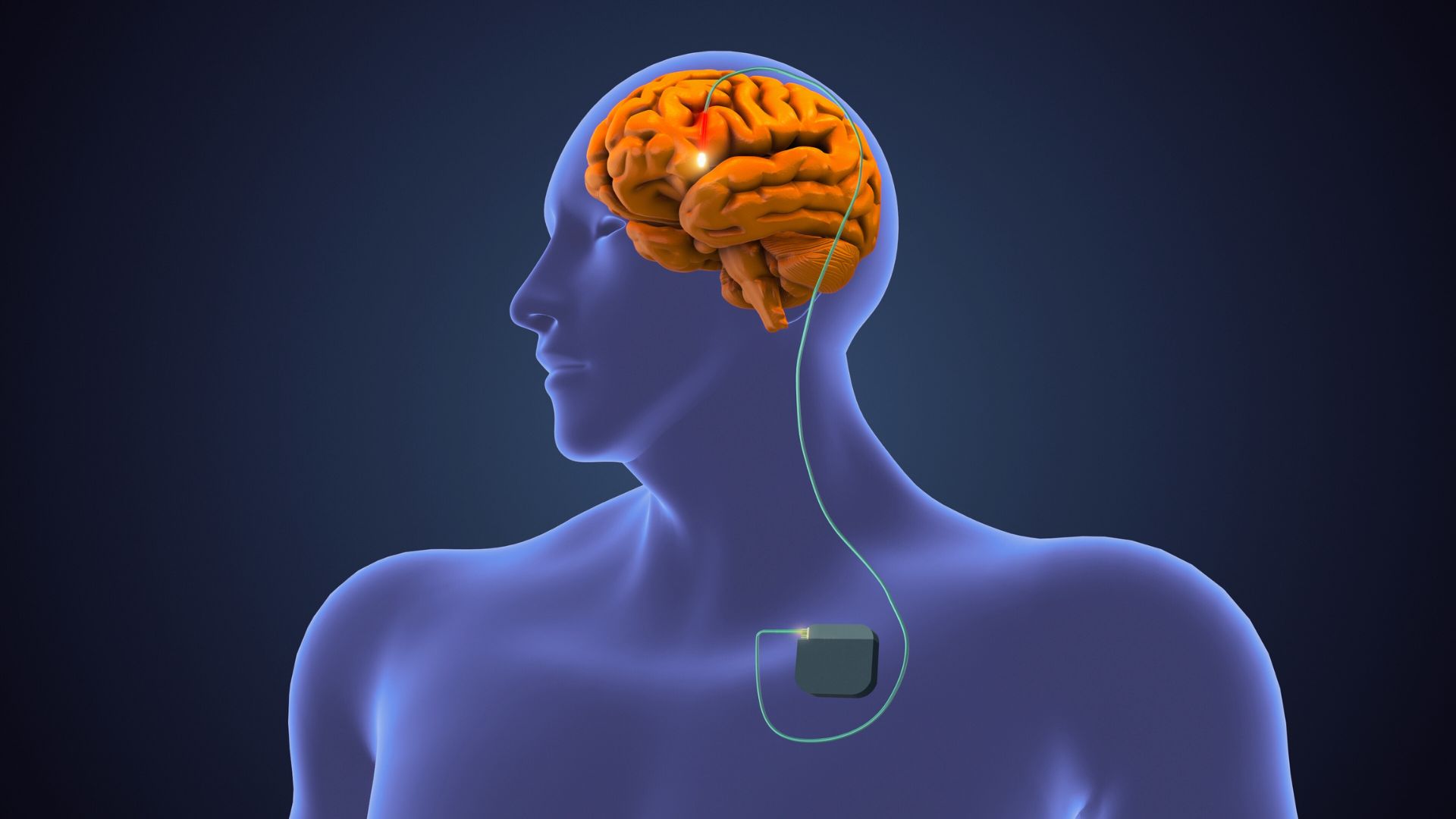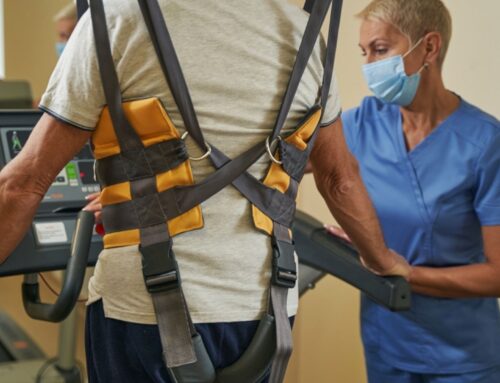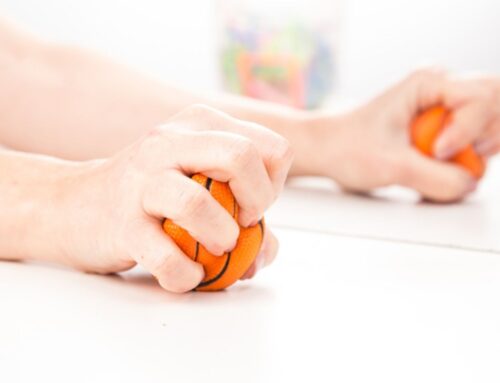When recovering from a stroke, a physiotherapist, exercise physiologist, and/or a kinesiologist with experience in stroke rehabilitation can provide insights on some of the leading treatment options available. In addition to being adept in the conventional ways that physiotherapy can help in stroke recovery, we are well versed on the latest research into non-conventional therapies, and how they impact stroke recovery like Constraint-Induced Movement Therapy.
What is Constraint-Induced Movement Therapy?
Constraint-Induced Movement Therapy, CIMT for short, is a treatment protocol created by a man named Edward Taub. During his research, Taub performed surgeries on monkeys that left them paralyzed in one arm by severing the nerves that sent impulses to their brains. Since there was no longer any input to the brain from the arm, the monkey’s brains stopped associating their arm with movement and ultimately resulted in a learned non-use – in other words, the monkey stopped using their arm for anything.
Once the monkeys were reliant on their now dominant arm for daily living, Taub put the monkeys good arm into restraints for long hours of the day, forcing them to use their bad arm in order to survive. He would place the monkeys’ food towards their bad arm, their water towards the bad arm and ultimately anything else that they had to do in normal living conditions would only be achieved by using their neglected arm.
Not surprisingly, the monkeys regenerated enough nerve impulses to allow almost normal movement of the damaged extremity for daily living. Taub wondered if the primate brain, much like ours, could regenerate impulses when forced to use the damaged extremity, surely human brains could to. This led to CIMT being used to treat and aid in the recovery of the affected upper limb in human cases of stroke, Cerebral Palsy, unilateral paralysis of the limb, and other conditions.
A 1999 clinical review of CIMT described the CIMT protocol as “constraining movements of the less-affected arm with a sling for 90% of waking hours for 2 weeks, while intensively training use of the more affected arm,” (Taub et al., 1999). And though this style of therapy works, the intensity, time-to-contact and physical and financial burdens pose a threat to someone who cannot afford going through even one of those aspects.
What is Modified Constraint-Induced Movement Therapy?
Based on those principles, Modified Constraint-Induced Movement Therapy (mCIMT) was created with modifications that allow less contact time and more freedom from the arm constraint, while still using a physical/occupational therapy or kinesiology regime to retrain the injured limb.
For example, typical contact time based on the current research varies from as little as 1-2 hours each day, 5 days a week of physiotherapist/occupational therapist/kinesiologist contact time, with 5 hours a day in a sling and upwards. With exercises that train both gross and fine motor skills, results have been seen to last at least six months when maintaining exercise trends.
Some exercises that an experienced therapist might work on with a client include: raising arm up to shoulder, bending elbow, picking up an empty glass, and picking up marbles. Therapists often encourage exercises and movements that are components to a person’s functional activity.
For instance, a therapist may work extensively on improving a person’s shoulder range of motion by facilitating the shoulder girdle’s coordination (i.e. scapulohumeral rhythm) so the person has an easier time reaching their head for grooming/cleaning.
The exercises vary from large range-of-motion (gross motor skills) to a small range-of-motion (fine motor skills) and are functional in their ability to transfer towards activities of daily living.
mCIMT in Rehabilitation Programs at Propel Physiotherapy
After having completed a review of current research on mCIMT in people who have had a stroke for my thesis, I learned that no matter the length of time since the stroke, benefits can be seen using this protocol. Being forced to use the affected limb in purposeful movements leads to benefits that apply to everyday life.
At Propel Physiotherapy, we use mCIMT as part of customized rehabilitation programs where appropriate for clients with stroke, brain injuries and hemiparesis. As a kinesiologist, I help to carry out a person’s exercise regimen as prescribed by the physiotherapist. In addition, I consult with the physiotherapist to determine the best practices in progressing movements that would be best to bridge the gap from clinic to the community.
As a kinesiologist, I also work closely with the treating physiotherapist to determine our clients’ work capacities and how much they can tolerate from an exercise perspective. I will find exercises, movements and activities that are exciting and new, but still apply to daily activities that can make your days easier.
Propel Physiotherapy is an industry leader in neurological disorder and brain injury treatment. Contact us to learn more about our stroke recovery programs or to speak to a therapist on how mCIMT can benefit you.
Written by

